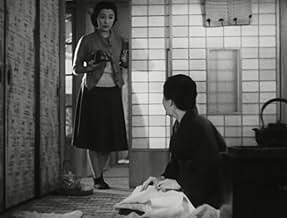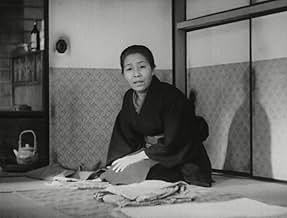As usual, you can expect a lot of visual purity from the Ozu movie. This has immaculate framing and great compositions. Except that you can experience the same impeccable cinematic style in any of his other 50 movies, and a better story to boot. I tried to immerse myself in this lineage tale of misunderstandings and family breakdown, but I couldn't help but find it stilted.
I admittedly understand that it is a completely foreign culture to begin with, and a culture of Imperial Japan to boot. Be that as it may, the way the script portrays the supposed disrespect the eldest sister exhibits to the mother is the most spurious domestic argument imaginable, where it is simply impossible for me to gauge "the big deal," so to speak. Have Japanese families lived in perfect harmony before the turn of the century and the Meiji era? Have they never kept information from each other or had misunderstandings about how they should all act when the guests come over? Was there seriously no better way of demonstrating that they didn't want the pair there beyond this plastic irritability with a mother and younger sister melodramatically kneeling in front of the portrait of the late patriarch? Oh, those were better times, indeed. Or were they? Beyond the group photo scene, there wasn't even a good impression of how he ruled the family except for the debts that he left them.
Ultimately, of course, the emancipator son, who, without even knowing what happened, immediately assumes they were forced out and condemned to the villa. The cabin that they say is dilapidated and that they won't even sell seeing it is that bad. Which is an even more dishonest statement than the arguments. Looks cozy to me. Just the same, he rescues them and takes them to Tianjin. Good for them. They'll get in on the ground floor in China. 1941 is just about time.



















